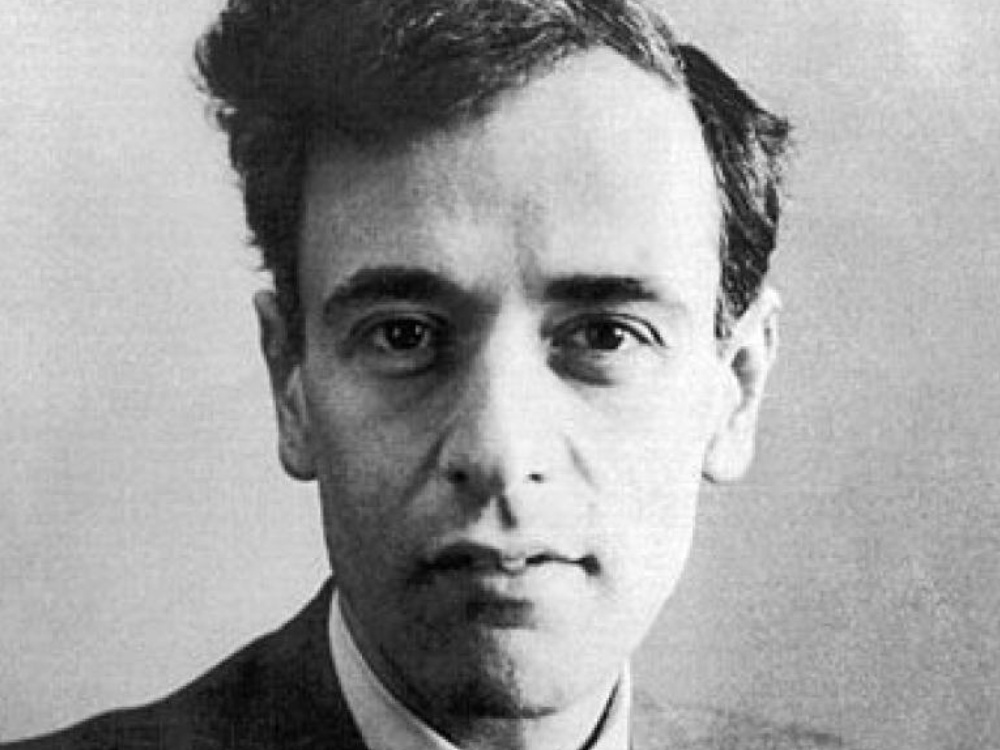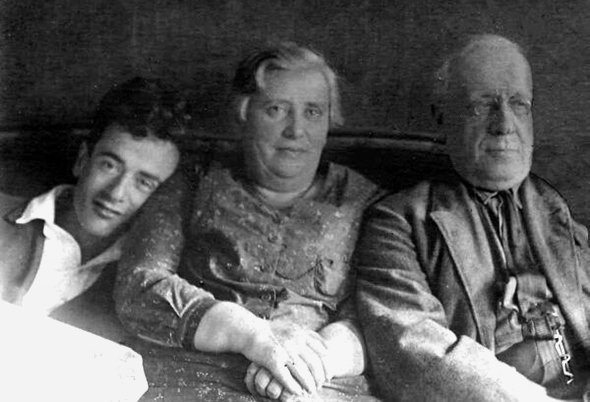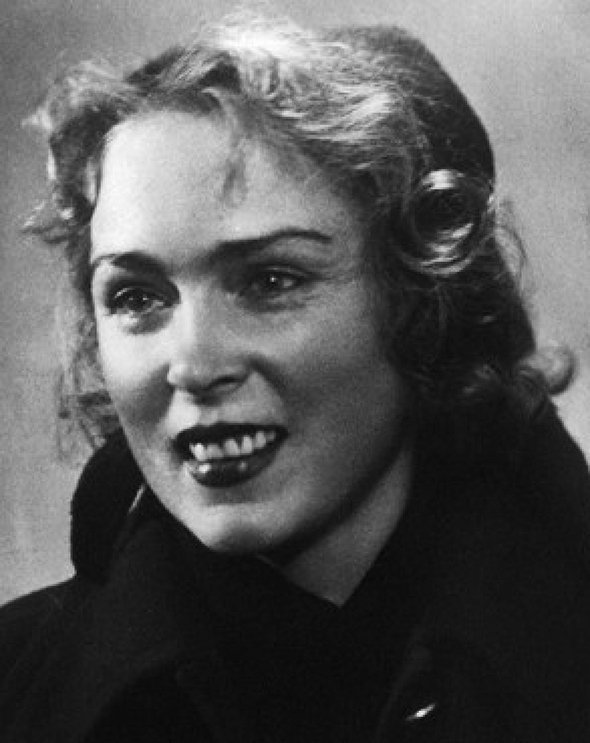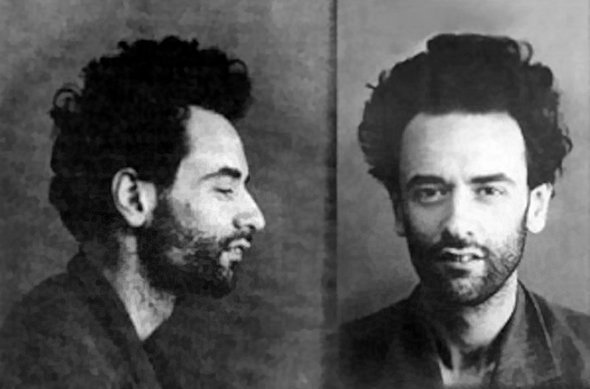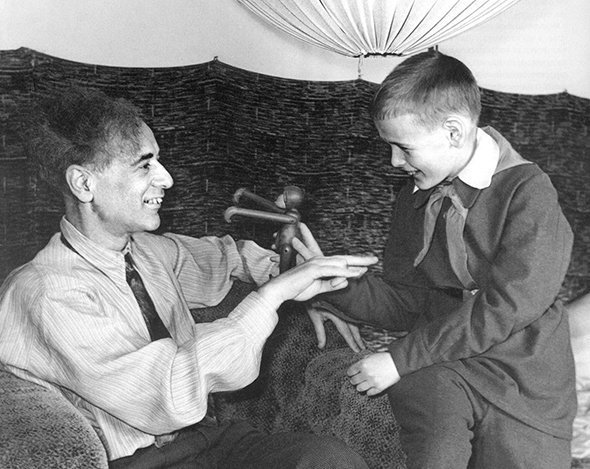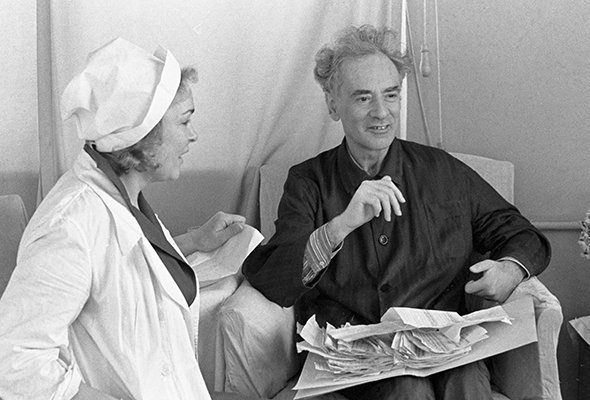DAU feature by Ilya Khrzhanovsky dedicated to Nobel-prize winning famous Soviet physicist Lev Landau was just premiered in France. It induced contradictory opinions, but unanimously was called the longest and one of the most original biopics ever. Lev Landau, the center character of the film, was also contradictory person in life and a true science genius. There's a true story of his life told by Alina Terekhova.
Lev Landau, the Nobel Prize Winner to be, completed his high school education when he was 13. At the age of 14, Lev entered the Faculty of Mathematics and Physics and the Faculty of Chemistry at the same time. In those days such case was unique. At 21, he was already a famous scientist; he was offered to work for the best European universities. But his utmost belief was that the best science in the world was only in the USSR.
Lev Landau’s father was a petroleum engineer in Baku, a rich man and a sworn bachelor. He met a woman of his dreams and decided to marry when he was nearly 40. She was unlike any other girl at that time: 29 years old, she came from a Jewish family and managed to save enough money for studies in Zurich. Then, despite the ban for Jews to settle in Saint-Petersburg, she was able to obtain a residence permit, as well as to graduate from the Women's Medical Institute, while working for its Department of Physiology. Even after getting married and giving birth to two children, she continued to work as a doctor, teach at the gymnasium and at the university, do research and publish articles in scientific journals.
Lev Landau with his parents, the 1930s
How Lev Landau became just Dau
Lev Landau was born in 1908. He was a rather reserved and gloomy child. But once he read that any person could build himself/herself up, got inspired with the idea and started making efforts to meet and communicate with people. That became his second nature: everyone knew adult Lev Landau as a witty and inquisitive person who could start a conversation with an academician, as well as with a laundress. He believed that the primary duty of a person was to be happy. In his opinion, such skill can and should be developed. If a person is unhappy, it means he/she simply does not want to get a grasp on his/her life and likes making a martyr of himself/herself.
Lev Landau derived a very simple formula of happiness: science, love and communication with people. Science certainly came first.
When he was 14, Lev easily entered the Baku University and studied simultaneously at the Faculty of Mathematics and Physics and the Faculty of Chemistry. Two years later the University was not able to offer the talented student anything more. He was advised to move to Leningrad. So at 16 he was in the thick of scientific life. Fellow students loved him for his wit, willingness to help and courage in front of professors. That was the time Lev got the nickname Dau, which he liked very much. “L'ane in French means donkey, that is, the surname Landau means Donkey Dau,” he said.
Scientists all over the world will know him as Dau. That was how he introduced himself, and that was the name his students knew him by.
“Landau’s skepticism” or the great scientist at 21
Lev Landau was interested in quantum mechanics, which was dawning that time. He believed thick books to be cemeteries of ideas (which, though, did not prevent him from writing a course in theoretical physics in ten volumes) and received required knowledge from foreign scientific journals. He spoke German and French fluently and learned English by his graduation. As to scientific articles, he read the research objective and the result only, and skipped the middle part: “All I need to know from the author is what he does; how to do it, I know better." He had a very simple criterion for good scientific work: it must explain something puzzled.
Lev Landau, 1929
In 1929 the People’s Commissariat of Education sponsored Lev Landau’s internship in Europe. He visited workshops of the greatest physicists of that time, gained a scholarship from the Rockefeller Foundation and published his work on metal diamagnetism, which later became known as “Landau diamagnetism”. Landau often visited Niels Bohr in Copenhagen and was his favorite student. “Sometimes he was unbearable: he interrupted Niels, mocked at those elder then him, looked like a boy with bushy hair aflare. But he was so talented and so truthful!” recalled Bohr’s wife. In fact, at the age of 21, Dau was already a mature scientist.
Once Landau had conversation with Christian Møller, a young physicist then, and shared with him his view on solution of one problem. Møller wrote an article, published it in a journal and thanked Landau for help in its closing section. Landau was filled with indignation: that article should have been signed with two names.
“You know, Dau, I want to get married, but my fiancée’s father will not agree if I am not an associate professor at the university,” confessed Møller.
“If this is the case, it is yours. I can write another article for you,” replied Landau.
Dau’s name was a byword of absolute honesty in science. For example, once he peered into a lecture hall and found out that the audience was waiting for a professor who would talk about his sensational discovery. And then, when the scientist filled the board with calculations and conclusions, Landau exclaimed: "Excuse me, but there are too many mistakes here." And he proved that if the problem was solved correctly, then there would not have been any discovery there. “Who let him in here?!” the professor was outraged. Lev Landau could not stand negligence or carelessness towards his work: "It is so shameful when you derive an outstanding result and fail to understand its meaning!"
“It is a well known fact: physicists were afraid to publish a raw article. Everyone knew that Landau would immediately notice miscalculations and there would be no mercy. It was suspected that everyone who worked in his department had really tough time to push their works through echelons of Landau’s skepticism, because he, as the person in charge, considered himself responsible for articles of his employees and always read them thoroughly.”
(As recollected by Maya Bessarab, Lev Landau’s niece)
Landau – a ladies’ man and wedlock without commitment
Back in his youth, Lev Landau swore that he would never get married. When he was 26, Lev met Kora (Konkordia Drobantseva); and their affair began. But even great love and passion could not induce him to marry. Obviously Kora did not like such uncertainty. Finally Landau gave up, but mentioned that the marriage would be just technical: he reserved the right to act as a bachelor (she also was granted full freedom) and made Cara promise that she would not be jealous. Landau thought marriage to be something like a cooperative and stated it had nothing to do with love.
Kora, Lev Landau’s wife
Their love lasted for 12 years. Then she became his housekeeper. Landau honestly gave her 70% of his earnings, but he lived his own life. She suffered, but her husband’s high salary and the status of an academician’s wife suited her well. Landau talked a lot about relationships and flirted with other women. Perhaps that was the reason many people thought he was a ladies' man. Although friends recalled that he had been serious about love, and his affairs could be counted on fingers.
Teaching years and the jail
During a student trip abroad, Lev Landau was offered several jobs in the best universities in Europe, but he refused. He used to say “No, I will return to my country of labour men, and we will create the best science in the world.”
Landau moved to Kharkov to be in charge of the Theoretical department at the Institute of Physics and Technology. He was busy with researches, but not only that - he was teaching as well: Landau gathered young talented physicists around himself, thought through the “theoretical minimum” (a list of required knowledge), conducted workshops at which anyone could give a talk. Often arguments and discussions were continued in Landau’s small apartment.
“Some believe that a teacher robs his students. Others say that students rob teachers. I think that both are right, and participation in such mutual robbery is great.”
Landau’s dreams of a great future for the country of labour men faded out by 1937: mass arrests began. Moreover, he could not figure out which principles people were taken on. The scientist went to Moscow and immediately got a job at the Institute of Physical Problems, where he worked with Pyotr Kapitsa.
At that time Kapitsa discovered that liquid helium had paradoxical behaviour near the zero point. When Lev Landau, a theorist, became interested in this problem, there came the hope that the phenomenon could be explained. Landau was literally on the threshold of discovery (later he was awarded the Nobel Prize for this work), but then he was arrested. It happened in 1938.
Landau spent a year in jail
Kapitsa took immediate action, although it was very risky to take up the cudgels for a potential "enemy of the people". He wrote a letter to Stalin asking him to release or at least carefully investigate the Landau’s case. A similar letter was written by Niels Bohr. But the authorities could not just release the scientist from jail - it would have meant confession to the whole world that they had jailed the renowned physicist by mistake.
The optimal solution did not come soon: Lev Landau was released a year later under Kapitsa’s personal guarantee. Alongside with Landau, his friend, physicist Yuri Rumer, was detained in Moscow – they spent their first night in the cell “talking about mathematics.” Rumer spent in jail 10 years. Every month Landau sent him money - the amount he did not give to his wife was spent "on vicious practices and philanthropy."
“My son will never say I'm a bore”
In his childhood, Lev Landau’s parents made him learn things he didn’t like - for example, music. So he did his best to avoid forcing his son Igor in any way. “My son will never say that I am a bore,” he said.
Landau had the following classification of bores: gnats (brawlers), moralinnics (they discharge moralin, a product of morals), abstains (they have a screwface), and touchy ones (they are always offended). Landau believed that eradication of bores was a duty of each decent human being. “If a bore is not furious, it’s a shame for others,” he used to say.
Lev Landau with his son Igor
Lev Landau dedicated to physics many hours a day, but he was able to switch his attention to domestic life in the blink of an eye.
“Garik (Igor, Lev Landau’s son - ed. note) was four years old when he was presented with an electric railway. Dau had huge love for toys; and seeing all these carriages, locomotives, semaphores, he was excited, fussed, tried to connect something, but everything out of lines; long story short - he interfered with everything. Then suddenly he connected the platform correctly and laughed happily. “At least daddy was useful for something,” commented the child, “Everyone laughed out loud.”
(As recollected by Maya Bessarab, Lev Landau’s niece)
Landau absolutely did not get along with equipment. According to him, he did not go to Kapitsa’s laboratory, because he could break all the devices there. Together with Kapitsa, Landau worked on the USSR atomic project. “If it were not for the clause number five, that is ethnic origin, I would not be engaged in any special work, but only in physics and science, which I am now falling behind. I have been brought down to the level of a “scientist slave”, and that has been determining everything,” said Landau.
Landau received the title of Hero of Socialist Labor for participation in these works, but he barely wore the golden star. It was attached to a jacket, which was nicknamed the ram jacket. Landau wore it when he had to ram someone, for example, to get theater tickets.
The Nobel Prize after death
On January 7, 1962, Lev Landau got into a car accident and was unconscious for nearly two months. The physics headquarter was arranged next to the Chief Physician’s office: 87 physicists kept vigil in turns and did their best to provide doctors with everything required.
“A directory was made with phones and addresses of everyone and everything: persons and institutions, which could be required at any minute. There were 233 telephone numbers recorded, including other hospitals, car fleets, airfields, customs, pharmacies, ministries, places where medical professional could possibly be.”
As recollected by physicists
On January 12, Landau stopped breathing, but physicists got the required respiratory apparatus. After another 10 days, cerebral edema began, and the required medicine was found in England. A British colleague promised to deliver it to the airport. He was getting late, so he called the head of the Heathrow airport. As a result, the plane was delayed for two hours. A physicist on duty was waiting for the medicine at the Sheremetyevo Airport.
In April, Landau began to recover. At the end of 1962 he was awarded the Nobel Prize for his “pioneering theories for condensed matter, especially liquid helium”. He was the only Nobel Prize winner in history who was awarded at the hospital. Life, the American magazine, even published an article under the title “The Nobel Prize after Death.”
Lev and Kora look through telegrams of congratulations after Landau was handed the Nobel Prize, 1962 / Photo credit: RIA Novosti
The last six years of his life he did not work in physic. Although he remained as cheerful person, as he had been, many of his nearest and dearest ones considered the accident to be his spiritual death. The formula that Landau had once derived was correct: love and communication are not enough for happiness.
Lev Landau died in 1968 after another operation. And The Course of Theoretical Physics by Lev Landau and Eugene Lifshits has seen countless reprints until now.

